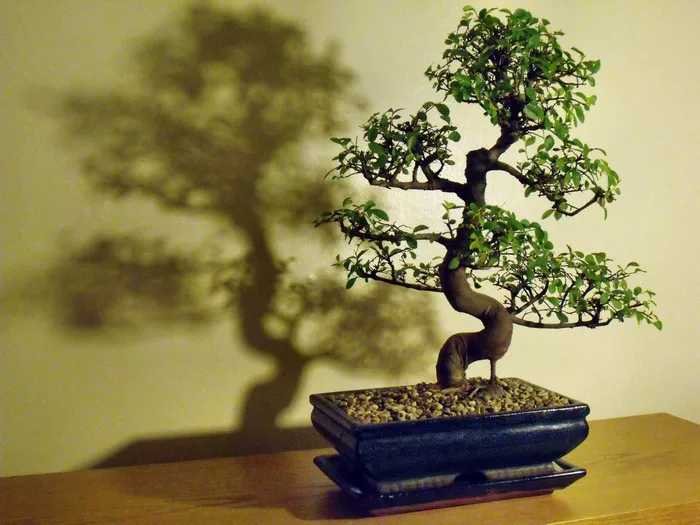Bonsai, the art of cultivating miniature trees, is a practice deeply rooted in patience and precision. From selecting the right species to nurturing the tiny saplings, every step in the bonsai journey demands careful attention. One crucial stage in this process is germination, where the dormant seed awakens to begin its journey towards becoming a magnificent bonsai tree. Understanding the germination timeline of bonsai seeds is essential for bonsai enthusiasts, as it sets the foundation for the entire cultivation process.
What Factors Influence Germination Time?
Before delving into the specifics of germination timelines, it’s vital to recognize the factors that influence this process. Several variables can affect how long it takes for bonsai seeds to germinate:
1. Species: Different species of trees have varying germination requirements. Some species may sprout quickly, while others may take longer.
2. Seed Viability: The viability of the seeds plays a significant role in germination. Fresh, high-quality seeds are more likely to germinate promptly compared to older or low-quality seeds.
3. Environmental Conditions: Factors such as temperature, humidity, light, and soil quality all influence seed germination. Providing optimal conditions can expedite the process.
4. Pre-treatment: Some bonsai seeds require pre-treatment techniques such as stratification (exposing seeds to cold temperatures) or scarification (breaking the seed coat) to enhance germination rates.
5. Seed Dormancy: Dormancy mechanisms inherent in certain seeds may prolong the germination process. Overcoming dormancy often requires specific treatments or conditions.
By understanding and manipulating these factors, bonsai enthusiasts can influence the germination timeline to some extent.
Common Germination Times for Bonsai Seeds
While germination times can vary widely depending on the factors mentioned above, certain general guidelines can help bonsai growers anticipate when to expect seedlings to emerge. Below are approximate germination times for some popular bonsai species:
1. Japanese Maple (Acer palmatum): Japanese maple seeds typically germinate within 14 to 28 days under optimal conditions. However, some varieties may take longer.
2. Chinese Elm (Ulmus parvifolia): Chinese elm seeds usually germinate within 7 to 21 days. They are known for their relatively fast germination compared to other species.
3. Juniper (Juniperus spp.): Juniper seeds may take anywhere from 30 to 90 days to germinate. Their germination process can be slow but is worth the wait for these iconic bonsai trees.
4. Pine (Pinus spp.): Pine seeds can be more challenging to germinate and may take anywhere from several weeks to several months. Patience is key when growing pine bonsai from seed.
5. Ficus (Ficus spp.): Ficus seeds typically germinate within 14 to 30 days, making them relatively quick to sprout compared to some other species.
It’s important to note that these are general estimates, and actual germination times may vary based on specific conditions and seed quality.
Optimizing Germination Conditions
To maximize germination success and reduce the time it takes for bonsai seeds to sprout, it’s crucial to provide optimal growing conditions. Here are some tips for creating the right environment for seed germination:
1. Temperature: Maintain consistent temperatures within the optimal range for the species being grown. Most bonsai seeds germinate best at temperatures between 65°F to 75°F (18°C to 24°C).
2. Humidity: Keep the growing medium consistently moist but not waterlogged. Using a humidity dome or misting the seeds regularly can help maintain adequate moisture levels.
3. Light: While some seeds require light for germination, others prefer darkness. Research the specific light requirements of the bonsai species you are growing and provide the appropriate conditions.
4. Soil: Use a well-draining, sterile seed starting mix to prevent damping off and other fungal diseases. Avoid using garden soil, which may contain pathogens harmful to delicate seedlings.
5. Ventilation: Provide adequate air circulation to prevent the buildup of humidity and reduce the risk of fungal infections. However, avoid exposing germinating seeds to strong drafts.
By carefully controlling these factors, bonsai growers can create an optimal environment that encourages prompt and healthy seed germination.
Overcoming Germination Challenges
Despite our best efforts, challenges may arise during the germination process. Here are some common issues bonsai enthusiasts may encounter and strategies for overcoming them:
1. Low Germination Rate: If only a few seeds out of a batch germinate, it may indicate poor seed quality or improper handling. To improve germination rates, source fresh, high-quality seeds from reputable suppliers and follow proper seed storage and handling procedures.
2. Seed Dormancy: Some bonsai seeds have dormancy mechanisms that delay germination until specific conditions are met. To overcome seed dormancy, try pre-treatment techniques such as stratification, scarification, or soaking in water before sowing.
3. Fungal Diseases: Excessive moisture or poor ventilation can create favorable conditions for fungal diseases such as damping off, which can kill seedlings. To prevent fungal infections, ensure proper drainage, ventilation, and hygiene practices when handling seeds and seedlings.
4. Pest Damage: Insects and other pests may feed on seeds or seedlings, causing damage or stunting growth. Protect germinating seeds by using physical barriers, natural predators, or organic pest control methods.
5. Environmental Stress: Extreme temperatures, drought, or other environmental stressors can impede seed germination and seedling growth. Monitor environmental conditions closely and make adjustments as needed to provide a stable and favorable growing environment.
By addressing these challenges proactively, bonsai growers can increase the likelihood of successful seed germination and nurture healthy seedlings.
Conclusion
The germination timeline of bonsai seeds is influenced by various factors, including species, seed viability, environmental conditions, pre-treatment methods, and dormancy mechanisms. While specific germination times may vary, understanding these factors and providing optimal growing conditions can help expedite the germination process. By optimizing germination conditions, overcoming challenges, and exercising patience, bonsai enthusiasts can embark on a rewarding journey towards cultivating exquisite miniature trees from seed.


